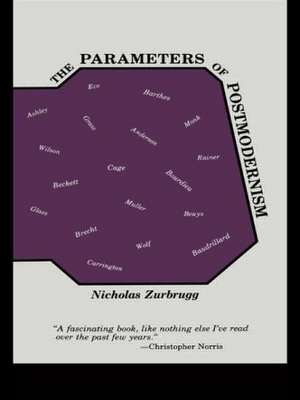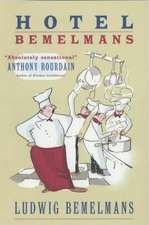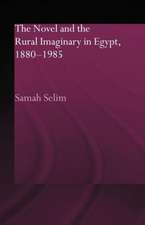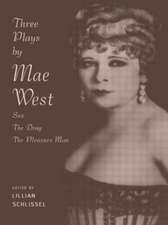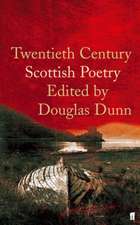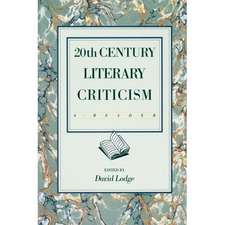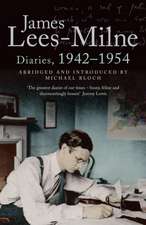The Parameters of Postmodernism
Autor Nicholas Zurbruggen Limba Engleză Paperback – 4 noi 1993
| Toate formatele și edițiile | Preț | Express |
|---|---|---|
| Paperback (1) | 441.36 lei 43-57 zile | |
| Taylor & Francis – 4 noi 1993 | 441.36 lei 43-57 zile | |
| Hardback (1) | 1000.27 lei 43-57 zile | |
| Taylor & Francis – 4 noi 1993 | 1000.27 lei 43-57 zile |
Preț: 441.36 lei
Nou
Puncte Express: 662
Preț estimativ în valută:
84.45€ • 88.41$ • 69.88£
84.45€ • 88.41$ • 69.88£
Carte tipărită la comandă
Livrare economică 07-21 aprilie
Preluare comenzi: 021 569.72.76
Specificații
ISBN-13: 9780415105620
ISBN-10: 0415105625
Pagini: 172
Dimensiuni: 138 x 216 x 12 mm
Greutate: 0.26 kg
Ediția:1
Editura: Taylor & Francis
Colecția Routledge
Locul publicării:Oxford, United Kingdom
ISBN-10: 0415105625
Pagini: 172
Dimensiuni: 138 x 216 x 12 mm
Greutate: 0.26 kg
Ediția:1
Editura: Taylor & Francis
Colecția Routledge
Locul publicării:Oxford, United Kingdom
Recenzii
`A fascinating book, like nothing else I've read over the past few years.' - Christopher Norris
Cuprins
Preface, Acknowledgments, Anti-Art or Ante-Art?, Monumental Art or Submonumental Art? , Eagleton and the Apocalyptic Fallacy, Introducing the B-Effect, Introducing the C-Effect, Deploring/Exploring Hyperspace: Jameson and Cage, Stupefaction or Enlivenment? , Benjamin and the Loss of Aura, Barthes, Belsey, and the Death of the Author, Bürger and the Death of the Avant-Garde, Bonito-Oliva, Baudrillard, and the Collapse of the New, Beckett, Brecht, and the Attractions of Antinarrative, Beckett’s Poetics of Failure/Brecht’s Poetics of Interrogation, Beckett, Brecht, and the Groan of the Text, Warhol and the Grin of the Text, Eagleton, Jameson, and Dehistoricized Culture, Cage, Kostelanetz, and Value Judgments, Jameson, Rauschenberg, and Premature Exasperation, Cage, Rauschenberg, and Ryman, Cage and Consumption, Collective Narrative and the Struggle with Simulacra, Depersonalized Culture or Repersonalized Culture?, Cage and the Antilogic of the Text, Beckett, Cage, and Nothing, Beckett, Cage, and Programmatic Composition, Purposeful Purposelessness or Nothing to Be Done?, Jameson, Bourdieu, and the Destruction of Art and Taste, Chion, Cage, and New Aesthetic Rationales, Postmodernism’s Purist Aesthetic, Postmodernism’s Hybrid Aesthetic, Feldman, Crazy Contradiction, and the Conceptual, Artistic Life, Pure “H”—Habermas and Communicative Rationality, Beuys, Adorno, and the Silence of Marcel Duchamp, Beuys, Cage, Buchloh, and the B-B-Effect, Jappe, Jameson, and the Concept of Utopia, Bense, Concrete Poetry, and the Dwindling of the Poetic Element, Chopin, Human Vitality, and Technological Civilization, Conz and the New Saints of the Avant-Garde, A Problem in Design: Lax and Mann, Postmodernism at Two Speeds: Hassan, Janco, and Seuphor, Rainer, Robbe-Grillet, Reich, and the Turn to Interobjectivity, Robbe-Grillet and the Re-turn to the Subjective Type of Writing, Rainer and the Re-turn to Identity, Reich and the Re-turn to Historical Realities, Multimedia Art in the Age of Mechanical Reproduction: Gaburo and Ashley, Monk and the Re-turn to Recurrence, Umberto Eco and the Re-turn to the Middle Ages, Grass and the Destruction of Mankind, Grass, Mann, and the Re-turn to Forbidden Literature, Ernst, Carrington, and the Re-turn of Surrealism, Carrington, Cage, Beuys, and the Poetics of Resistance, Cage, Carrington, Barthes, Burroughs, Bense: From Artha to Moksha, Cage, Wolf, and the Re-turn to the Third Alternative, Wolf, Mann, and the Authority of Literary Genres, Müller, Beuys, and the Elevation of the Berlin Wall, Müller, Brecht, and the Petrification of Hope, Müller, Wilson, and the Re-turn to the Classics, Huyssen and the Endgame of the Avant-Garde, Huyssen, Popper, and the Electrification of the Avant-Garde, Buñuel, Breton, Benjamin, Baudrillard, and the Myths of Mechanical Depersonalization, DeLillo, Müller, Lyotard, Kroker, and the Panic Sensibility, Ballard, The Kindness of Women, and Catharsis, Beyond the Disappearance of Value: Anderson and Acker, Toward Effective Communication: Kruger and Holzer, Appropriation, Neutralization, and Reconciliation: Tillers and Johnson, Independent Internationalism: Finlay and Lax, Anderson and American Active Freedom, Glass and Wilson: Alienation Effect or Empathy Effect?, Burroughs, Walker, and the Pattern of Chaos, Beckett, Warrilow, and the Clarity of Spirit, Considered in Diagrammatic Summary: The Phases of Postmodernism, The Modes of Modernism and Postmodernism, Baudrillard or Cage? Degeneration or Affirmation?, Burt, Wendt, and the Positive Parameters of Postmodernism, Index
Descriere
This ground-breaking work draws upon the authors interviews with leading postmodern artists, including Baudrillard, Beckett, Cage and Glass. It offers a challenging and positive view of postmodern culture.
